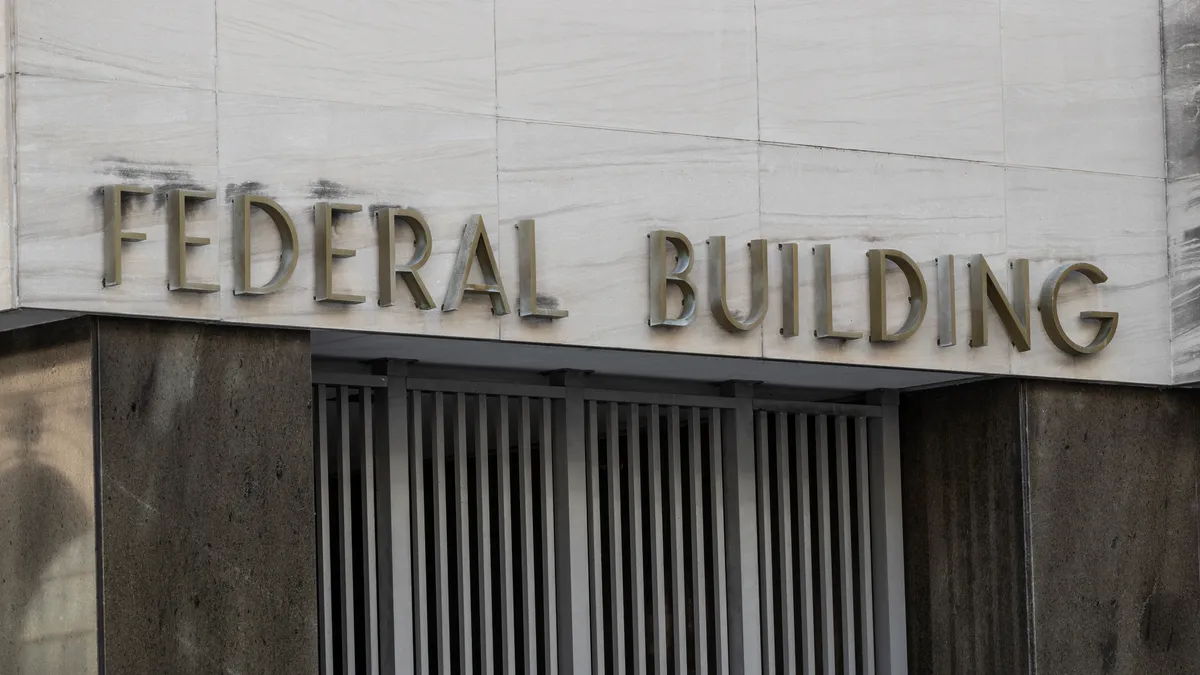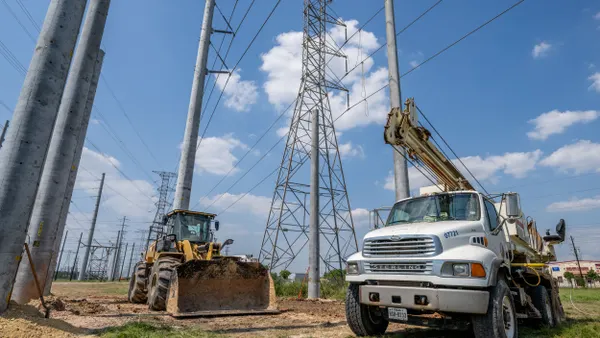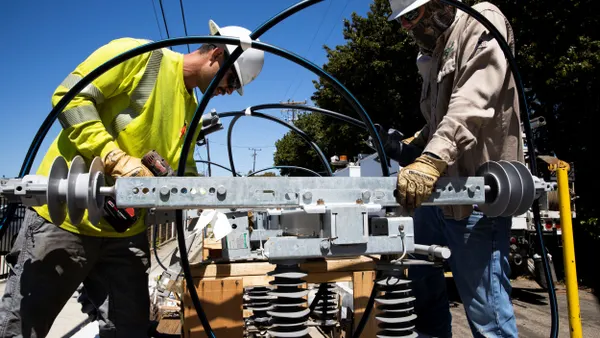Dive Brief:
- The U.S. Department of Energy is allocating $104 million for energy conservation, clean energy and net-zero projects at 31 federal facilities.
- These projects are expected to double the amount of new carbon-free electricity at federal facilities, from the amount brought online in 2022, generating an additional 27 megawatts of clean energy capacity, the DOE said in a Jan. 17 news release. The department predicts that the projects will save more than $29 million in energy and water costs in the first year of operation.
- The projects align with President Biden’s December 2021 clean energy Executive Order, which calls for a 65% reduction in greenhouse gas emissions from federal operations by 2030 and a net-zero building portfolio by 2045, the DOE said.
Dive Insight:
The $104 million package is the initial disbursement of three installments from the $250 million allocated under the bipartisan infrastructure law, the release said. The funding is sourced from the DOE’s Assisting Federal Facilities with Energy Conservation Technologies program. The AFFECT program, managed by the DOE’s Federal Energy Management Program, aims to help agencies reduce energy consumption through building electrification, geothermal heat pumps, on-site solar generation and battery energy storage.
FEMP will accept applications for the second round of AFFECT funding this month, the DOE said. The DOE said there was “an unprecedented number of applications for this round of funding, with submissions from 16 different agencies” and that agencies with selected projects will channel the funding toward equipment and technical assistance to plan, develop and implement its measures.
The projects selected for the first disbursement will be implemented at federal facilities belonging to entities such as the Social Security Administration; the U.S. Departments of Commerce, Defense, Energy, Transportation and the Interior; the U.S. General Services Administration and the U.S. Office of Personnel Management, the DOE said.
The U.S. Department of Defense’s Pentagon in Arlington, Virginia, will install rooftop solar panels, a heat-recovery heat pump system and solar thermal panels to reduce reliance on natural gas and fuel oil combustion systems. The U.S. Department of Transportation’s headquarters in Washington, D.C., will install LED lights and occupancy sensors in low-occupancy areas and apply photovoltaic film on south-facing windows to conserve and generate energy. The Transportation Department’s Maui Air Traffic Control Tower in Kahului, Hawaii, will also replace a 35-year-old HVAC system with high-efficiency equipment, replace its windows, implement water conservation measures and install a new 75 kilowatt solar photovoltaic system and an advanced metering system, per the release.
“The Federal Government is the nation’s largest consumer of energy, and conserving as much power as possible in our buildings and vehicle fleets benefits taxpayers and bolsters our national security,” U.S. Secretary of Energy Jennifer Granholm said in the release, noting that the projects will help to secure energy independence while fighting climate change.
Awarded agencies can boost the resiliency of their operations by utilizing the funds to advance energy infrastructure and consider additional technologies like battery energy storage systems, according to Nicole Bulgarino, executive vice president and general manager of federal solutions at Ameresco, which provides energy efficiency and renewable energy solutions to public and private organizations. “We have been fortunate to investigate the opportunity afforded by this program for agencies throughout several of our engagements. The investment allows the awarded agencies to consider deep energy retrofits that may not have ‘penciled’ through energy efficiency savings alone,” Bulgarino told Facilities Dive.
President Biden has tasked the federal government with “leading by example” by transforming a portfolio of over 300,000 government buildings to energy-efficient and climate-resilient structures, White House Council on Environmental Quality Chair Brenda Mallory said in the release. Mallory added that the investment would not only accelerate the administration’s federal sustainability goals, but also generate thousands of “good-paying jobs” and save money for taxpayers.
The funding is part of the Biden administration’s Investing in America agenda, according to the DOE. The department said it also expects the selected projects to align with the administration’s Climate Smart Building Initiative, which aims to leverage public-private partnerships to stimulate over $8 billion in private sector investments by 2030.
















